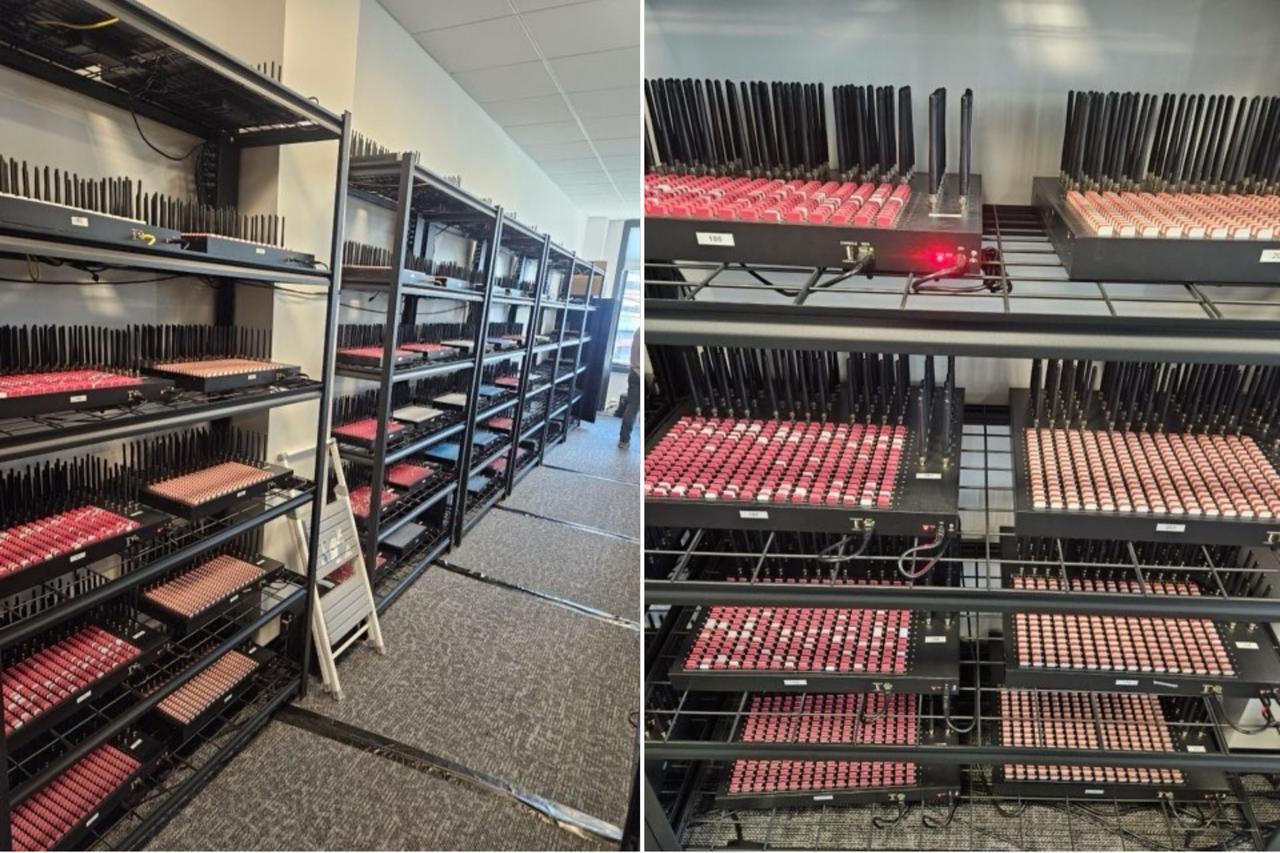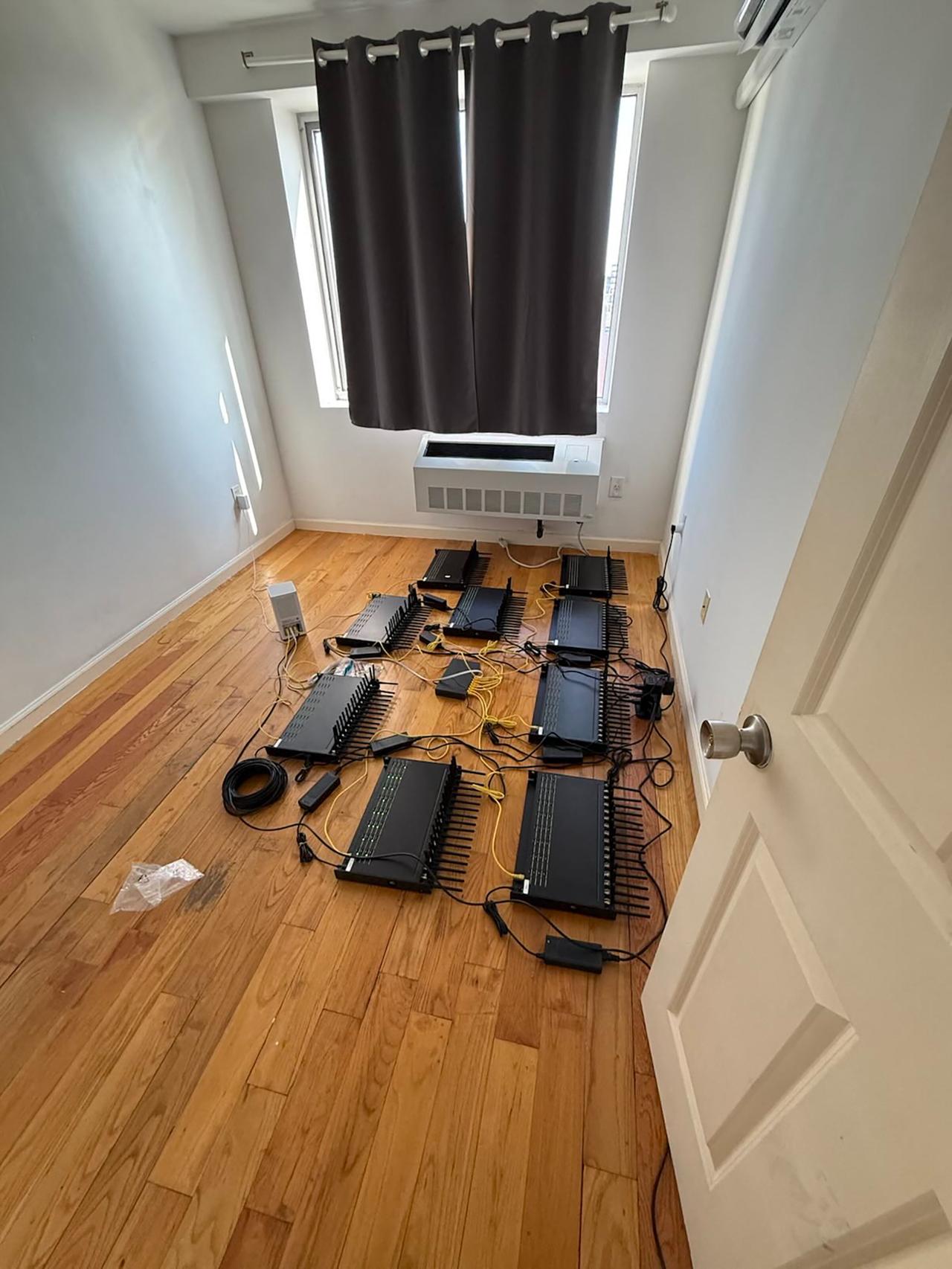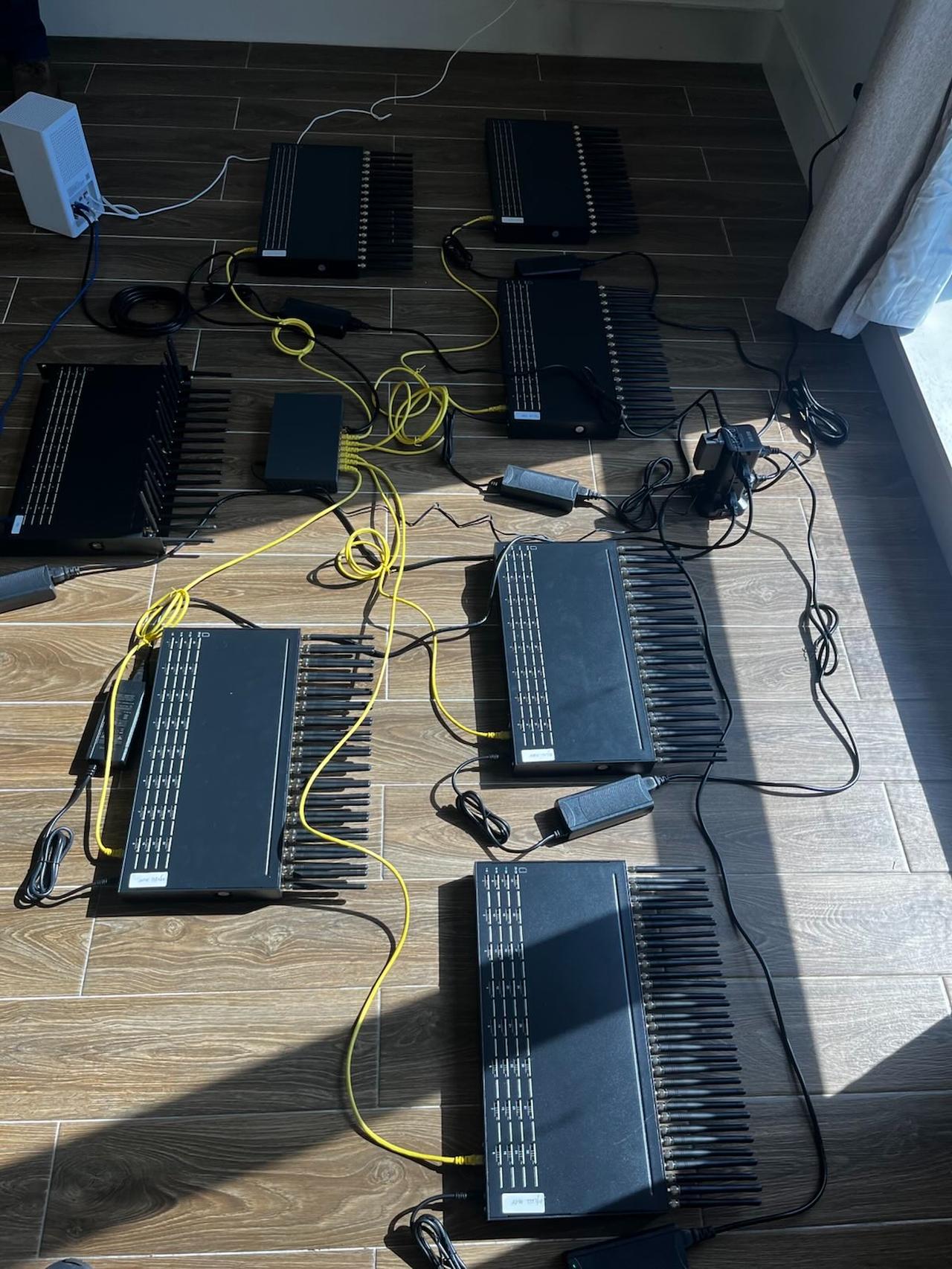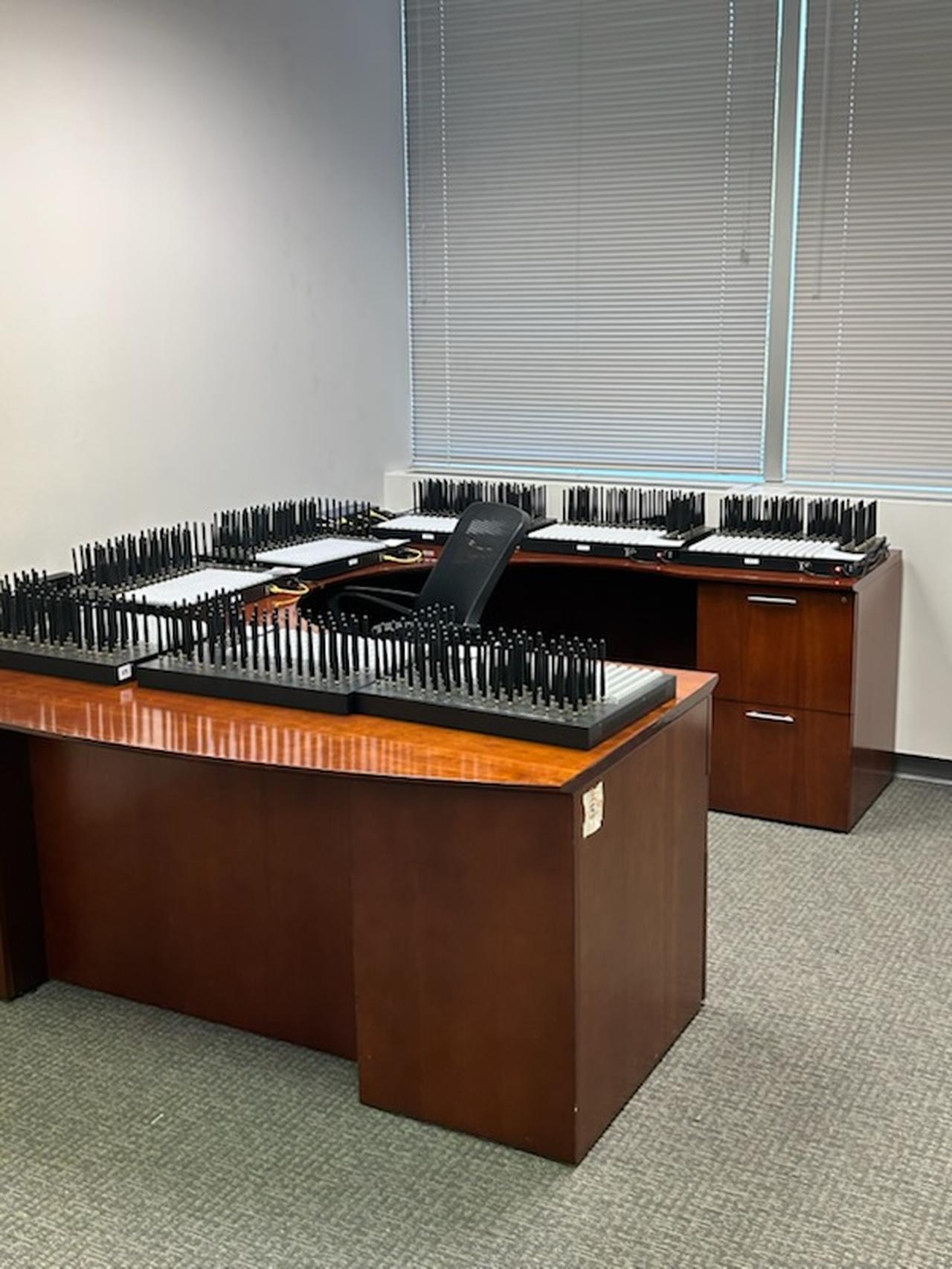
The U.S. Secret Service announced Tuesday it has dismantled a sophisticated illegal electronic network capable of shutting down New York City's cellular infrastructure, just as more than 150 world leaders gathered in Manhattan for the United Nations General Assembly.
Federal agents seized more than 300 servers and 100,000 activated SIM cards from multiple locations within a 35-mile radius of U.N. headquarters, uncovering equipment capable of sending 30 million text messages per minute and potentially jamming emergency 911 services across the nation's largest city.

The discovery followed a months-long investigation that began last spring after anonymous telephonic threats targeted three high-level U.S. government officials, including one Secret Service official and two White House staff members, one with direct access to U.S. President Donald Trump, according to law enforcement sources briefed on the probe.
"The potential for disruption to our country's telecommunications posed by this network of devices cannot be overstated," Secret Service Director Sean Curran said in a statement Tuesday.
Officials believe the plot is connected to the Chinese government, according to one law enforcement source, though the Secret Service declined to provide specific details, citing the ongoing investigation and international sensitivities.
Matt McCool, special agent in charge of the Secret Service's New York field office, warned the network could have had "catastrophic" consequences for the city.
"It can take down cell towers, so then no longer can people communicate, right? You can't text message, you can't use your cell phone. And if you coupled that with some sort of other event associated with UNGA, you know, use your imagination there, it could be catastrophic to the city," McCool said.

The seized equipment included floor-to-ceiling shelves stacked with servers equipped with antennas and SIM cards. Beyond the 100,000 activated cards, agents discovered additional SIM cards waiting to be deployed.
"We need to do forensics on 100,000 cell phones, essentially all the phone calls, all the text messages, anything to do with communications, see where those numbers end up," McCool said.
Officials compared the potential impact to cellular blackouts that followed the 9/11 attacks when networks collapsed under strain.
The agency stated that it had never encountered such an extensive operation before.
Initial forensic analysis has identified ties to at least one foreign nation and connections to criminals already known to U.S. law enforcement, including cartel members, Secret Service officials told reporters Monday.
Agents also discovered 80 grams of cocaine, illegal firearms, computers and cellphones when they found the network, according to one official speaking on condition of anonymity.

While officials said they have not uncovered a specific plot to disrupt the U.N. General Assembly, which runs through Sept. 29, they emphasized there is no ongoing threat to New York City. President Trump was scheduled to address the gathering on Tuesday.
"Given the timing, location and proximity and potential for significant disruptions to the New York telecoms system, we moved quickly to disrupt this network," McCool said.
The investigation involves the Secret Service, the New York Police Department, the Justice Department, Homeland Security Investigations and the office of the director of national intelligence.
No arrests have been made yet as the probe continues.
"This is an ongoing investigation, but there's absolutely no reason to believe we won't find more of these devices in other cities," McCool warned.
Cybersecurity experts suggest only a handful of nations possess the capability for such a sophisticated operation.
"My instinct is this is espionage," said Anthony J. Ferrante, global head of cybersecurity practice at FTI and former White House and FBI cybersecurity official, speaking to The New York Times, describing the operation as sophisticated and costly.
James A. Lewis, a cybersecurity researcher at the Center for European Policy Analysis in Washington, said Russia, China and Israel are among the few countries capable of executing such an operation.